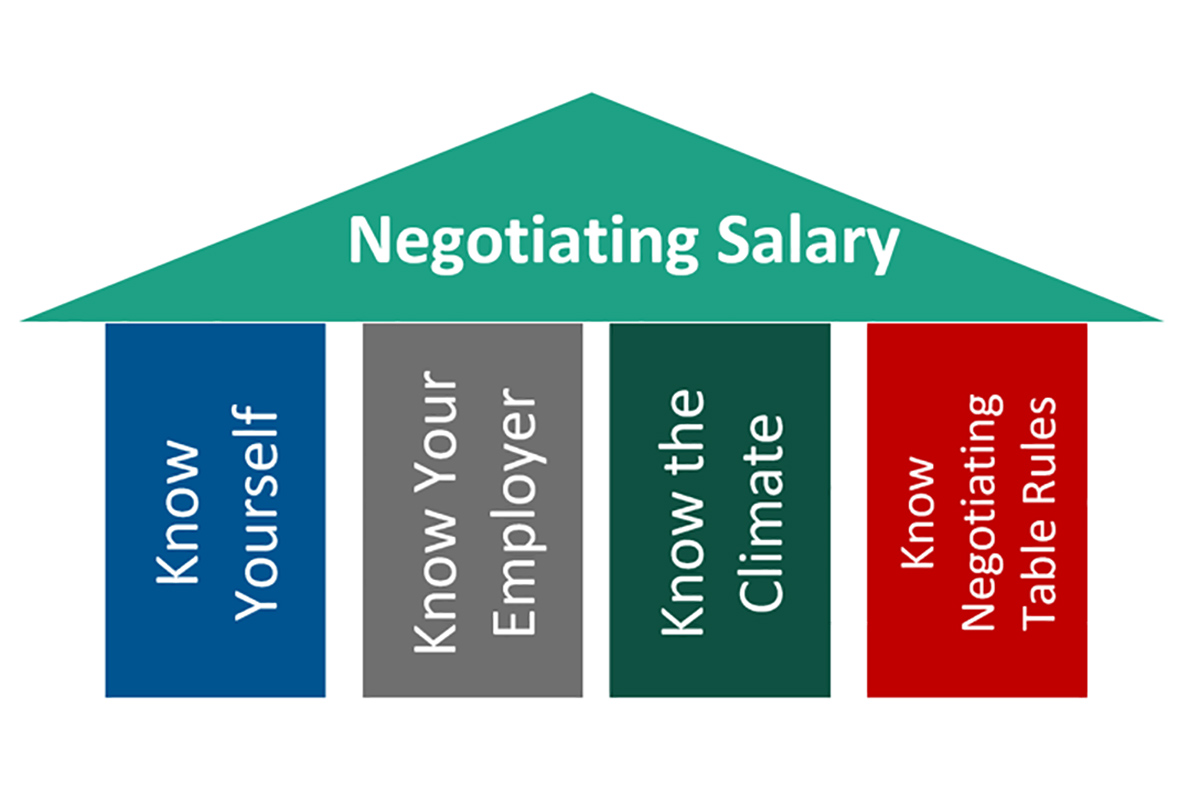It's Time to Get Paid! Negotiating a Salary Increase

Whether you are a Fellow in Training (FIT) who has just finished 6 – 8 years of training and starting your first job, or an early career who has been at the same job for a few years, at some point in your career you will find yourself wondering how you can negotiate a salary increase.
As FITs, we are offered fixed non-negotiable salaries, which are largely regulated by graduate medical education policies, and there is generally a "take it or leave it" approach. However, we can always negotiate a salary when it comes to a job.
In this article, I outline principles I have learned about salary negotiation.
Know Yourself
What is more important to you: your time or your salary?
- Salary is not the only thing you are negotiating in a job. You may successfully negotiate a higher salary but end up with more time commitment and responsibilities in exchange.
- For academicians, your protected time is one of the most valuable things you can negotiate.
What number do you have in mind?
- You have to have a number in mind! You cannot show up to the negotiation table and not know what you really want. This number should be backed up by facts and objective data. Association of American Medical Colleges Faculty Salary Report and Medical Group Management Association Physician Compensation Report are useful resources for this.
What can you compromise on?
- You cannot expect to get everything you want.
- Know your "must-haves" and "giveaways."
Know the Other Party
- Does your immediate boss have the authority to offer you a raise? In the majority of cases, your boss or their boss does not have the authority to offer you a raise and you will have to meet with several higher ups.
- What are the objectives and needs of your employer, and do you fulfil their needs? In other words, how important are you to your employer?
- Are you a big fish in a small pond or a small fish in a big pond?
- What is the negotiating style of the other party? Some employers are willing to negotiate and some are not.
Know the Climate
- What is the financial health of your institution? An institution that is struggling financially is unlikely to give you a raise.
- Have you been at your job long enough? Unless you have been at least one year at a job, you are unlikely to get a raise.
- Have you been given more responsibilities since your last salary was fixed?
- What is your "image?" Have you met and exceeded all expectations or you are struggling?
- Timing? You have limited opportunity to negotiate if this is your first job out of fellowship.
- Baggage? Visa requiring candidates have very limited options on alternative employers, and usually for first three years, they are almost "locked in" a particular job, which significantly limits the opportunity to negotiate.
Know Negotiating Table Rules
- Communication
- The most useful communication skill is listening.
- Be respectful.
- Be confident.
- Be straight forward.
- Do not beat around the bush.
- Do not list your personal problems as justification for your raise. Your employer does not want to hear that your kids started private school and that is why you need a raise.
- Do not give ultimatums unless you are willing to follow through on them and already have a backup.
- Rehearse, Rehearse, Rehearse!
- Rehearse your conversation multiple times.
- Demands
- Be precise in your demands. I want $500,000 annually instead of a 20 percent salary raise.
- Quantify your value
- Quantify your exact value in terms of clinical production (i.e. relative value units), educational work, research productivity, administrative responsibilities and prestige you bring to the institution.
- Comparisons
- Do not compare your salary to your peers at the same institution.
- Comparing your current salary to any other job offers you have is okay, and it may put you at a position of strength.
- Compromise
- Be willing to compromise on things that are of lesser value to you but higher value to the other party.
- Patience
- Successful negotiations do not take place in a single sitting.
- Responding to "No"
- If your demands are not met, it is important to stay composed and respectful.
- You can always discuss alternatives to a salary raise, such as a signing bonus, relocation allowance, student loan payment plans, more protected time, less call, benefits and more.



